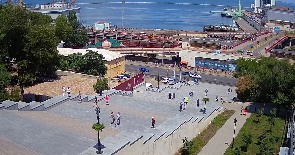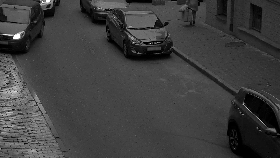Recommendations on characteristics for choosing the cameras:
- Regarding the resolution of the cameras - Neuro Detector module does not depend much on the resolution - it can detect humans and vehicles even on sub-stream of 416x416 pixels (if other recommendations are met). And since higher resolution requires more network, HDD and CPU/GPU resources - it is not recommended to use resolution higher than 4MP. Resolution of 2 MP is a good balanced choices for most of the cases.
- Matrix size not less than 1/3" .
- Possibility of shutter speed control (at least, values 1/2 ~ 1/1000 are required). Moving objects have to be clearly visible.
- The less distortion of the lens and of the picture - the better. The detection quality on distorted areas are worse.
- The more light sensitive will be the matrix - the better.
- RWDR 120 dB (camera hardware WDR).
- Onvif-compliance (at least S).
Recommendations on camera settings:
- GOP level has to be equal to the detection frequency (Detector settings in Trassir VMS) or more frequent.
- Camera bitrate has to be sufficient for required resolution, fps an motion intensity. The camera picture has to be stable, without noise and glitches.
- Codec has to be H.264.
- Set correct aspect ratio.
- Disable OSD text on camera if possible.
- Disable camera software picture enhancements. Consider using only RWDR if WDR is required.
Factors other than camera characteristics and settings, affecting the Neuro Detector performance:
- The lighting in the scene of detection. At the night time, there should be no overexposure of the objects. Objects which will be too close to a camera's IR LEDs will be overexposured. The IR backlight should illuminate the objects in such a way as to make them as contrasting as possible with the background. The backlight or other light sources should illuminate the entire scene of detection.
- Big objects like trees or buildings might obscure the objects of detection. Humans, vehicles and bicycles might also obscure each other.
- The positioning of the camera. Ideal vertical angle is 45 degrees, Permissible deviation is +-20 degrees.
Maximum distance for the detection will depend on many factors - like camera characteristics and placement (positioning), scene features, lighting conditions and so on. It might detect objects up to 70 meters from focal point (minimal focal distance) to detection point (or even further), but as harder will be the listed above conditions - the less maximum distance will be available.
Examples of good angles and image quality:





